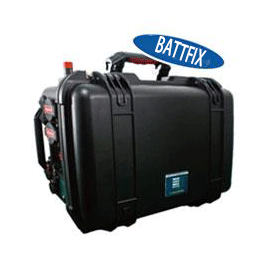
# How to Choose the Right Auto Battery Charger for Your Vehicle
Choosing the right auto battery charger is essential for maintaining your vehicle’s battery health and ensuring reliable performance. With various options available in the market, it’s important to understand the key factors that will help you make an informed decision. This guide will walk you through the essential considerations when selecting an auto battery charger.
## Understanding Your Battery Type
Before purchasing an auto battery charger, it’s crucial to know the type of battery your vehicle uses. The most common types include:
– Lead-Acid Batteries: Traditional and widely used in most vehicles.
– AGM (Absorbent Glass Mat) Batteries: Found in modern vehicles with start-stop technology.
– Gel Cell Batteries: Less common but used in specific applications.
Ensure the charger you choose is compatible with your battery type to avoid damage and ensure optimal charging.
## Charger Types and Their Features
Auto battery chargers come in different types, each designed for specific needs. Here are the main categories:
### 1. Trickle Chargers
Trickle chargers provide a slow, steady charge and are ideal for maintaining batteries over long periods of inactivity. They are perfect for seasonal vehicles like motorcycles or boats.
### 2. Smart Chargers
Smart chargers, also known as intelligent chargers, automatically adjust the charging rate based on the battery’s condition. They often include features like:
– Multi-stage charging (bulk, absorption, and float stages).
– Overcharge protection.
– Desulfation mode to revive old batteries.
### 3. Jump Starters with Charging Functionality
These devices not only charge your battery but also provide the necessary power to jump-start your vehicle in case of a dead battery. They are portable and convenient for emergencies.
## Key Features to Look For
When selecting an auto battery charger, consider the following features to ensure you get the best product for your needs:
### 1. Voltage Compatibility
Most car batteries are 12V, but some vehicles, like trucks or RVs, may use 6V or 24V systems. Ensure the charger matches your battery’s voltage.
### 2. Amperage Rating
The amperage (A) determines how quickly the charger can replenish your battery. Higher amperage chargers (10A-50A) charge faster but may not be suitable for smaller batteries. Lower amperage chargers (1A-10A) are better for maintenance charging.
### 3. Safety Features
Look for chargers with built-in safety features such as:
– Reverse polarity protection.
– Overcharge protection.
– Short-circuit protection.
– Spark-proof technology.
### 4. Portability
If you need a charger for on-the-go use, consider a compact and lightweight model with a carrying handle or case.
## Additional Considerations
Here are a few more factors to keep in mind:
### 1. Brand Reputation
Opt for reputable brands known for quality and reliability. Reading customer reviews can also provide insights into the charger’s performance.
### 2. Warranty
A good warranty indicates the manufacturer’s confidence in their product. Look for chargers with at least a one-year warranty.
### 3. Price vs. Value
While budget is a consideration, don’t compromise on essential features for a lower price. Investing in a quality charger can save you money in the long run by extending your battery’s life.
## Conclusion
Choosing the right auto battery charger involves understanding your vehicle’s battery type, selecting the appropriate charger category, and considering key features like voltage compatibility, amperage, and safety. By taking these factors into account, you can ensure your battery remains in top condition, providing reliable performance whenever you need it.
Keyword: auto battery charger
Comments are closed